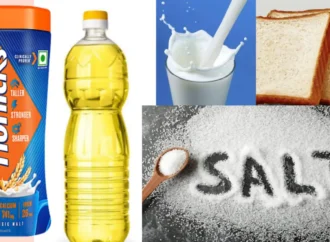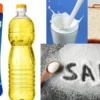You’ll find health supplements everywhere these days—whether it’s protein powders, vitamin tablets, herbal drinks, or probiotics. Stores, gyms, and online platforms sell them widely, often promising to boost immunity, improve strength, or support digestion. But are these products safe to consume? In India, the Food Safety and Standards Authority of India (FSSAI) steps in to regulate all food-related products, including health supplements, nutraceuticals, and functional foods. These aren’t medicines, and they aren’t regular food either. That’s why FSSAI has set clear rules to make sure companies keep these products safe, label them correctly, and don’t make false claims. Let’s break it down.
What Are Health Supplements?
Health supplements are products that people consume to support their overall health, improve nutrition, or add specific nutrients to their diet. They are usually available in the form of powders, capsules, tablets, or drinks, and are commonly used by fitness enthusiasts, the elderly, and people with specific dietary needs.
Some common examples of health supplements include:
-
Vitamin and mineral tablets
-
Omega-3 capsules
-
Energy drinks
-
Probiotic or herbal formulations
-
Fortified foods or drinks (like calcium-rich beverages)
These products do not treat or cure diseases, but they may help fill nutritional gaps or improve wellness. Since they are consumed like food, FSSAI regulates them under the Food Safety and Standards (Health Supplements, Nutraceuticals, Food for Special Dietary Use, Food for Special Medical Purpose, Functional Foods and Novel Foods) Regulations, 2016.
What FSSAI Regulates in Health Supplements

FSSAI has laid down specific rules to make sure health supplements are safe, clean, and honestly labelled. These regulations help protect consumers from harmful ingredients and false health claims.
Licensing and Approval
Every company that manufactures, imports, or sells health supplements must get a valid FSSAI license. This license confirms that:
- The facility meets hygiene and safety standards
- The company follows proper manufacturing practices
- The ingredients used are permitted by the FSSAI
If a brand wants to use a new ingredient not already approved, it must apply to the FSSAI and submit safety data before using it in any product.
Use of Only Approved Ingredients
FSSAI allows only specific vitamins, minerals, amino acids, enzymes, plant extracts, and probiotics in health supplements. These must be within recommended safe limits.
For example:
- Vitamin C, B12, or D3 can be used, but only in permitted doses
- Herbal ingredients like ashwagandha or tulsi are allowed, but must be listed clearly
No drug substances are allowed in these products. Anything that treats or cures a disease is classified as a medicine, and that falls under drug regulations, not FSSAI.
No False or Misleading Claims
This is a key part of FSSAI’s rules. Supplements cannot claim to cure or prevent diseases. A product can say:
- “Supports immunity”
- “Helps maintain bone health”
But it cannot say:
- “Cures diabetes”
- “Prevents cancer”
- “100% safe weight loss without diet or exercise”
All claims must be backed by scientific evidence, and FSSAI can ask brands to prove them.
Proper Labelling Is Mandatory
FSSAI wants consumers to know exactly what they are consuming. That’s why labels must include:
- Name of the product
- List of all ingredients
- Nutritional information
- Serving size and dosage
- Usage instructions
- Warnings, if any (e.g. “Not for children under 5” or “Consult a doctor if pregnant”)
- FSSAI license number
- Expiry date
If a product doesn’t mention this clearly, it could be unsafe or illegal.
Safe Packaging and Manufacturing
FSSAI requires that health supplements be:
- Produced in hygienic conditions
- Tested in NABL- or FSSAI-recognised labs
- Free from harmful substances, heavy metals, or banned ingredients
- Packaged in food-grade containers with proper seals
The goal is to ensure product quality from factory to shelf.
What You Should Do as a Consumer
Even with regulations in place, it’s important to stay alert when buying health supplements.
Here are some simple tips:
- Look for the FSSAI license number on the label
- Read the ingredient list—avoid unknown or chemical-sounding names
- Avoid products with miracle claims—there are no shortcuts to health
- Stick to the recommended dosage—more is not always better
- Buy from trusted brands and sources—prefer pharmacies or well-known websites
- Report unsafe or misleading products through the FSSAI “Food Safety Connect” app or portal
Final Thoughts
FSSAI plays a crucial role in making sure health supplements in India are safe, properly labelled, and not misleading. These products can support your health when used wisely, but they are not a substitute for medicine or a balanced diet. As a consumer, always read the label, check the claims, and stay informed. If a product promises too much or hides key information, it’s best to avoid it. With the right awareness, you can protect your health and make smarter choices.
 Food Manifest
Food Manifest 


















